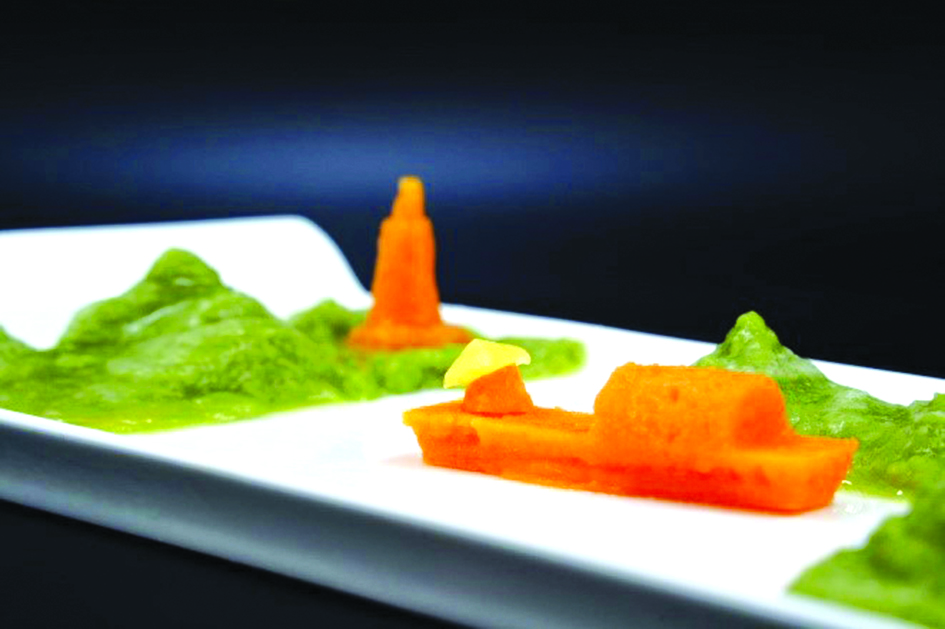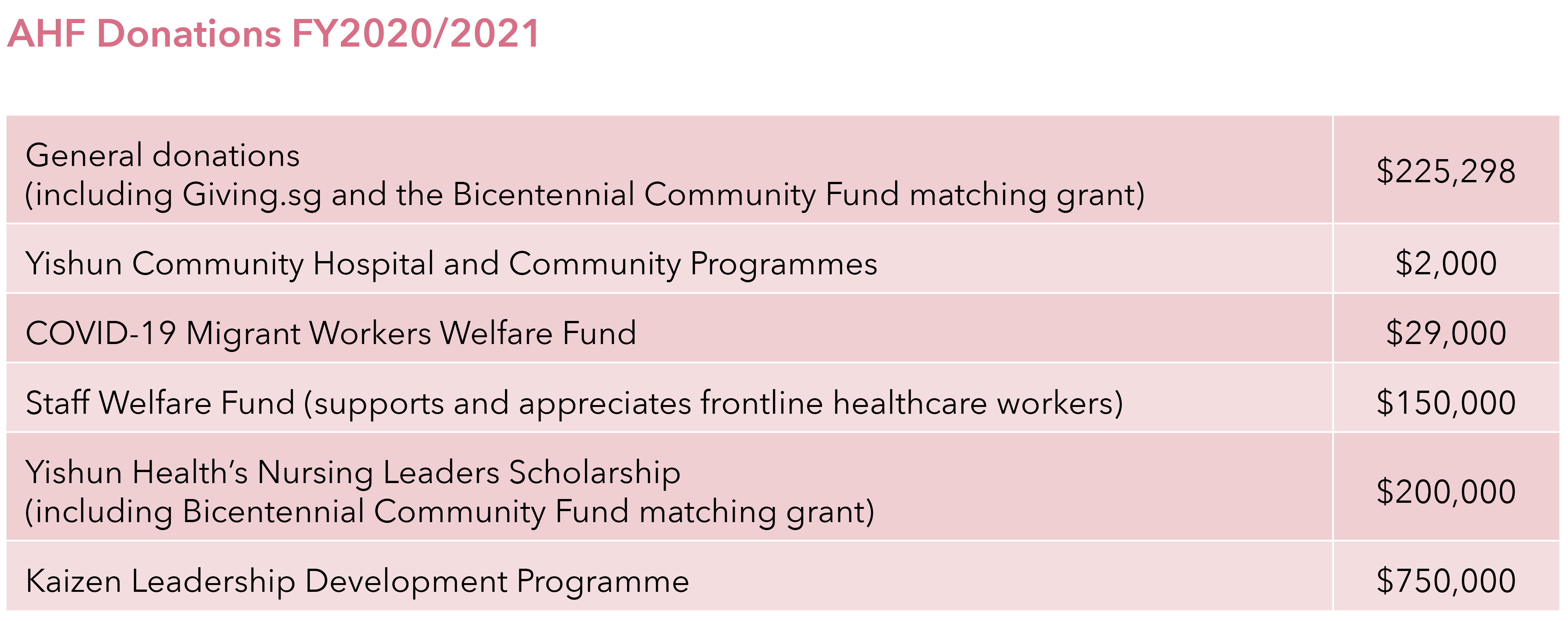DRIVING RESEARCH, PURSUING EDUCATION, ENHANCING HEALTH
At Yishun Health, we strive to improve the quality of care for our patients through research, education and innovation. In these unusual times, we have also directed our efforts to support the fight against the pandemic and affected communities.

SUPPORTING RESEARCH AND MORE
The Alexandra Health Fund (AHF) drives a large proportion of Yishun Health’s research work. In all, AHF has supported 35 key programmes directed at enhancing health and improving quality of life for our patients through programmes in education, research and innovation, community collaboration, and financial assistance for those in need.
During the pandemic, AHF played an important role in supporting the efforts to recognise and appreciate Yishun Health staff. In addition to this, a COVID-19 welfare fund was set up to help migrant workers who were warded or waiting for Community Isolation Facility admissions.
In FY2020/2021, AHF benefited over 400 unique patients with financial assistance. It continues to help patients live independently in the community through support services, such as transportation and home care, medical equipment, consumables, and medical treatment.
COLLABORATIONS AND TESTING FOR BETTER RENAL CARE
COVID-19 did not stop the Renal Medicine team from the initiation and continuation of multiple investigator-driven clinical studies.
The team continues to collaborate with the Department of Computer Sciences, National University of Singapore, on acute kidney injury mathematical modelling, and the Biomedical Engineering & Materials Group, School of Engineering, Nanyang Polytechnic, on image analysis for ultrasonography of lungs in end-stage kidney disease patients. Both projects make use of artificial intelligence and machine learning.
Internally, the Renal Medicine team also has interdisciplinary collaborations with dietitians and pharmacists on randomised controlled trials using keto-analogues and a low-protein diet in patients with diabetic kidney disease. In addition, they also explore using urokinase for dysfunctional tunnelled dialysis catheters in haemodialysis patients.
OTHER INITIATIVES COVERED IN THIS CHAPTER
A NEW SCORING SYSTEM TO PREDICT TYPE 2 DIABETES REMISSION AFTER METABOLIC SURGERY
Dr Angela Moh, Principal Research Officer, Clinical Research Unit, KTPH
Metabolic surgery is the most effective treatment to reverse Type 2 Diabetes (T2D) in people with obesity, but not all patients achieve complete remission.
To improve patient selection for surgery and define realistic postoperative goals, a scoring system is used to predict the success of T2D remission after surgery. One commonly used scoring system in Asia is the Diabetes Surgery Score. However, this system is not sensitive to Singapore’s local mixed ethnic cohort.
Using our growing in-depth understanding of the pathobiology of diabesity, a new scoring system was developed to improve prediction of T2D remission following metabolic surgery: the Metabolic surgery Diabetes Remission (MDR) score.
In contrast to previous scoring systems, MDR is the first of its kind to reflect pancreatic β-cell response to blood glucose. The algorithm may serve as a useful clinical scoring system for predicting short-term T2D remission after metabolic surgery in the Singapore’s multi-ethnic Asian population.
3D FOOD PRINTING FOR MORE APPETISING PUREE DIETS
Gladys Wong, Senior Principal Dietitian, Nutrition and Dietetics, KTPH

Frail older adults, and persons with dementia or stroke, typically have difficulties chewing and swallowing, which can increase the risk of choking and aspiration pneumonia. They are usually advised to eat pureed foods.
However, pureed foods are challenging to prepare, and do not look or taste appetising compared to regular food. This can lead to reduced food intake and compromised nutrition.
For some time now, the Nutrition and Dietetics (N&D) department has explored the use of 3D food printing to produce foods that are of a consistent texture, while also being visually presentable, palatable and personalised. This gives patients a safe, dignified eating experience. In FY2020/2021, one of the areas that N&D focused on designing was fresh plant-based food inks.
The 3D-printed samples were then analysed for texture, shape stability, and printing precision to allow the team to identify the ideal one. To ensure patient safety when eating, the texture of each formulation was also tested using Fork Pressure and Spoon Tilt tests to confirm the appropriate texture as determined by the International Dysphagia Diet Standardisation Initiative.

